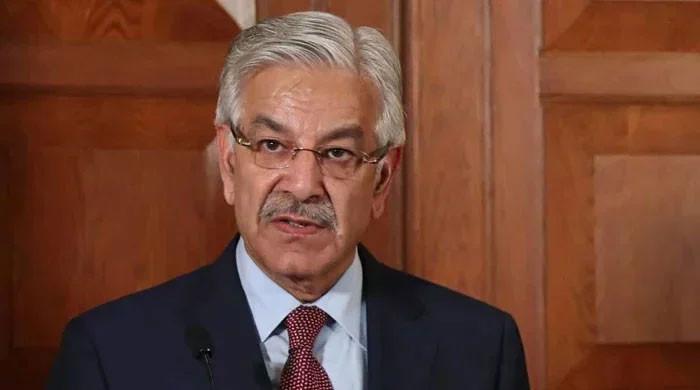Defense Minister Khawaja Asif voiced strong criticism on Wednesday regarding the report from the inquiry commission investigating the 2017 Faizabad sit-in by Tehreek-i-Labbaik Pakistan (TLP). He dismissed the report as lacking “authenticity” and “credibility,” declaring it valueless during an interview with a private TV channel.
The commission, which was set up to look into the actions during the TLP’s sit-in, cleared former Inter Services Intelligence (ISI) director general, retired Lieutenant General Faiz Hamid, of any wrongdoing.
“The Faizabad commission was a joke,” Asif remarked, pointing out that significant military figures like retired General Hamid and former army chief Gen (retd) Qamar Javed Bajwa were not present for the proceedings, whereas he and other political figures were.
He expressed his disappointment with the lack of seriousness he perceived when he appeared before the commission, questioning whether it had adequately fulfilled its responsibilities.
The inquiry, initiated by the Supreme Court after the 2017 sit-in led by the late TLP leader Khadim Hussain Rizvi, also exonerated the former Punjab Rangers director general, Major General (retd) Azhar Naveed Hayat.
Allegations had surfaced that both officers had distributed money among the sit-in participants, a charge the commission did not uphold. At the time, Hamid was in charge of ISI’s counter-intelligence wing and held the rank of a major general.
The commission, chaired by Dr. Akhtar Ali Shah, a former Khyber Pakhtunkhwa Police officer, along with senior PAS official Khushhal Khan and former inspector general Tahir Alam, concluded that the then-army chief and ISI director had authorized Hamid to sign a settlement agreement as an arbitrator.
This agreement, also backed by former Prime Minister Shahid Khaqan Abbasi and former Interior Minister Ahsan Iqbal, led to the dispersal of the protestors on November 25, 2017.
The probe was tasked with identifying those responsible for facilitating the sit-in. While it called for legal action based on findings by the federal and Punjab governments, the commission itself faced criticism for its conclusions and methodology.
Last November, a new inquiry commission was established by the caretaker federal government following the Supreme Court’s dismissal of a previous fact-finding committee report, continuing the investigation as mandated by the top court’s 2019 Faizabad verdict.
The probe panel was constituted on the order of the Supreme Court under the chair of retired IGP Akhtar Ali Shah after the apex court rejected the fact-finding committee report constituted by the government.
Faizabad Verdict
In November 2017, the Supreme Court took suo motu action concerning a three-week-long sit-in protest that erupted due to a controversial change in the oath regarding the finality of Prophethood in the Elections Act 2017, which the government attributed to a clerical mistake.
The sit-in was eventually concluded after the protesters and the government came to an agreement.
On February 6, 2019, a two-member bench of the apex court emphasized stringent measures against those issuing harmful edicts or fatwas. They recommended severe prosecution under appropriate laws for anyone found using religious edicts to endanger others.
Furthermore, the court mandated that intelligence agencies should operate strictly within their defined roles and not overstep their boundaries. Following these decisions, the bench officially closed the suo motu case related to the Faizabad sit-in.

Leave a Comment
You must be logged in to post a comment.